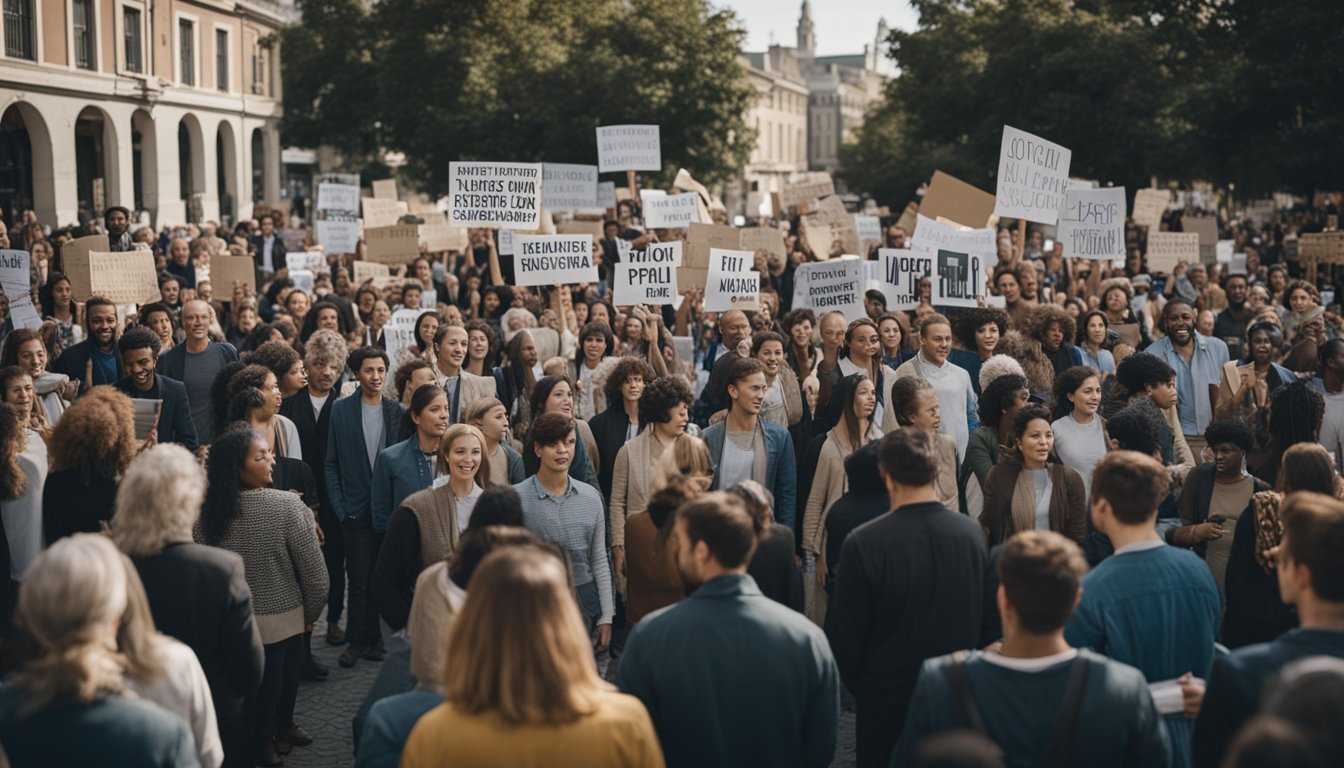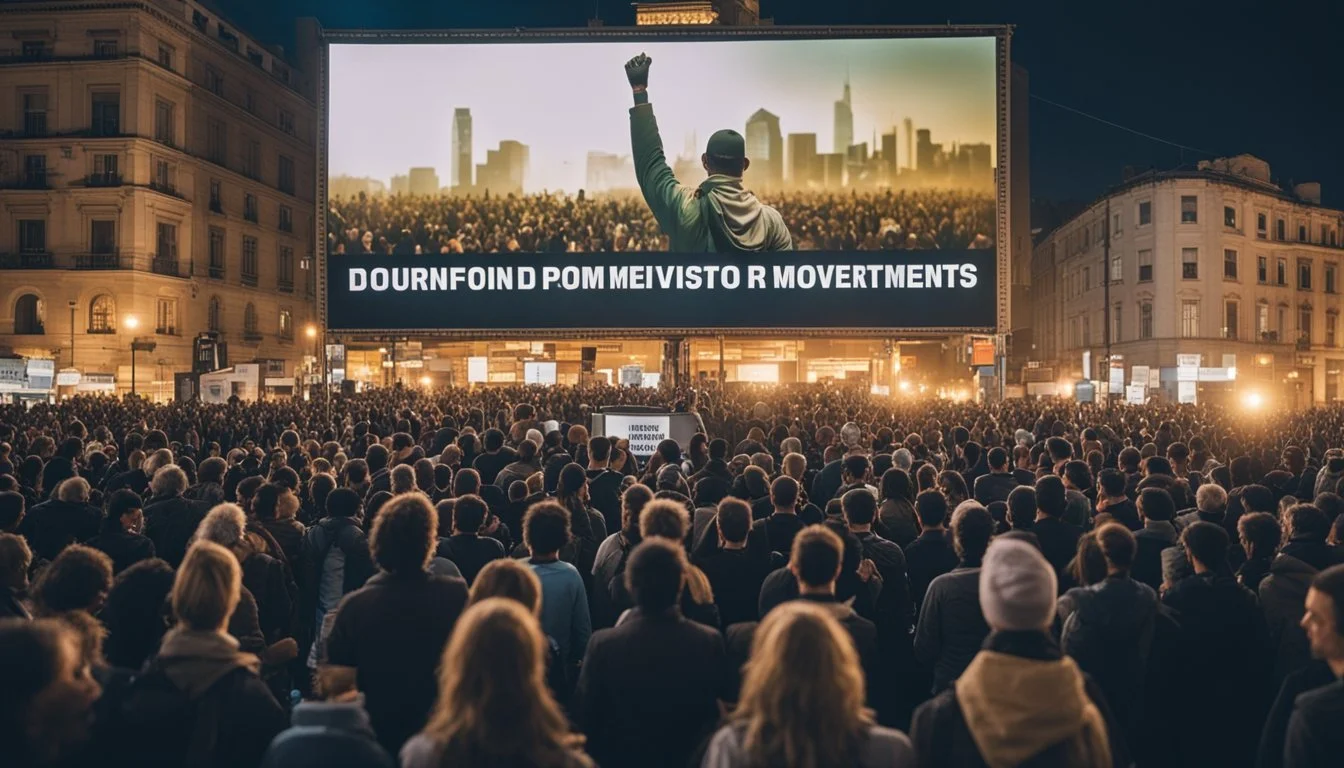5 Documentaries on Grassroots Political Movements
Inspiring Stories of Change
Grassroots political movements have long played a crucial role in shaping societies and pushing for transformative changes. These movements often emerge from communities that seek to address systemic injustices, mobilizing individuals through collective action. Through pivotal moments and relentless efforts, grassroots activists strive to voice their demands and influence policy.
Documentaries offer an authentic lens into these movements, shedding light on the personal stories and strategic efforts behind significant political actions. They capture the resilience and determination of individuals who challenge the status quo, providing viewers with a deeper appreciation of the power of grassroots activism. By exploring these films, audiences can gain insight into the complexities and impacts of social change driven from the ground up.
1) “Crips and Bloods: Made in America” by Stacy Peralta (2008)
"Crips and Bloods: Made in America" delves into the origins and evolution of two of Los Angeles' most notorious gangs. Directed by Stacy Peralta, the documentary explores the 40-year rivalry between the Crips and the Bloods.
Narrated by Forest Whitaker, the film combines historical context with personal testimonies. It explains how systemic issues like racism, segregation, and economic hardship have influenced gang violence.
The documentary also features insights from former gang members, community leaders, and experts. It sheds light on the factors that perpetuate gang culture in South Los Angeles.
The narrative underscores the impact of broken homes, constant police monitoring, and civil unrest. These elements have created an environment where gang membership flourishes.
Stacy Peralta's work offers an in-depth look at a complex and often misunderstood social issue. The film highlights the humanity behind the headlines.
Watchers gain a better grasp of the lived experiences of individuals in gang-affected neighborhoods. More information about the film can be found on its IMDb page.
2) “Ai Weiwei: Never Sorry” by Alison Klayman (2012)
“Ai Weiwei: Never Sorry” is a documentary film directed by Alison Klayman. Released in 2012, the film provides an intimate look at the life of Chinese artist and political activist Ai Weiwei.
Klayman gained unprecedented access to Ai Weiwei from 2008 to 2010. This allowed her to document not just his artistic process but also his personal life and his confrontations with the Chinese government.
The film delves into Ai Weiwei's unique approach, which combines art with political activism. He uses his art to challenge the Chinese authorities and to promote free speech and transparency.
Klayman's documentary also explores Ai's use of social media as a tool for activism. This has made him a global figure and an inspiration for many.
For more details about the film, visit Wikipedia.
3) “The Black Power Mixtape 1967-1975” by Göran Olsson (2011)
Göran Olsson's "The Black Power Mixtape 1967-1975" is a documentary that explores the Black Power movement through the lens of Swedish journalists.
The film presents archival footage shot between 1967 and 1975, providing a unique perspective on the era's political and social dynamics in the United States.
Notable figures like Angela Davis, Bobby Seale, and Huey P. Newton make appearances, offering firsthand insights into the movement's significance and challenges.
The documentary combines historical footage with contemporary audio commentary from artists, activists, and scholars, lending depth to the visual narratives.
It uncovers the relationship between media portrayals and the actual experiences of those involved in the movement.
The film is a compelling mix of raw footage and reflective commentary, making it an essential watch for those interested in American history and social justice.
For more information, visit the Wikipedia page.
4) “Knock Down the House” by Rachel Lears (2019)
“Knock Down the House” is a documentary directed by Rachel Lears that captures the 2018 U.S. congressional campaigns of four female Democrats. The film prominently features Alexandria Ocasio-Cortez, alongside Cori Bush, Joe Crowley, and Paula Jean Swearengin.
Rachel Lears' work highlights non-career politicians stepping into the political arena. The documentary provides an intimate portrayal of grassroots campaigns, showcasing the challenges these women faced while running against powerful incumbents.
Filmed over several months, “Knock Down the House” offers viewers a closer look at the determination, resilience, and motivations of these candidates. The film’s emotional depth without being overly manipulative has received positive reviews from critics.
Premiering at the 2019 Sundance Film Festival, it won the Audience Award for U.S. Documentary and the Festival Favorite Award. It captures a pivotal moment in American politics, emphasizing the impact and significance of grassroots movements.
For more information, you can visit its IMDb page.
5) “The Square” by Jehane Noujaim (2013)
"The Square," directed by Jehane Noujaim, is a documentary capturing the Egyptian Revolution of 2011 from the ground level. This film provides an intimate look at the political struggle and social upheaval in Cairo's Tahrir Square.
Noujaim's work brings the viewer close to the core of the protests, emphasizing the experiences and perspectives of the activists involved. Spanning several years, the documentary follows key figures as they navigate the complexities of demanding change and encountering resistance.
The raw footage and personal narratives offer a vivid portrayal of the passionate and perilous lives of the revolutionaries. Viewers gain insights into the ebbs and flows of hope and despair as the political climate evolves in Egypt.
"The Square" was first released in 2013 and later re-edited to incorporate new footage, enhancing its depth and scope. The film stands out for its emotional impact and visual storytelling, making it a powerful record of a pivotal moment in Egyptian history.
For more information, visit "The Square" on IMDb.
The Importance of Grassroots Political Movements
Grassroots political movements have played crucial roles in shaping history and influencing policy and legislation. They engage ordinary people in the political process, driving substantive and meaningful change from the ground up.
Historical Context and Evolution
Grassroots movements have long been a catalyst for societal change. From the civil rights movement in the United States to the anti-apartheid struggle in South Africa, these movements have emerged in response to social injustices and systemic oppression.
Grassroots efforts are often characterized by their bottom-up approach, where leadership and initiative come from ordinary citizens rather than established political entities. Historically, these movements have employed protests, strikes, and acts of civil disobedience to garner attention and support.
Initially, grassroots activism relied on face-to-face meetings and printed materials to organize and communicate. With the advent of the internet and social media, the reach and impact of these movements have exponentially increased, enabling rapid mobilization and broader visibility.
Impact on Policy and Legislation
Grassroots political movements have a significant track record of influencing policy and legislative changes. Engaging in lobbying, advocacy, and public demonstrations, these movements draw attention to critical issues and pressure policymakers to act.
For instance, the environmental movement, through grassroots activism, has advanced numerous environmental protection laws and regulations. Similarly, labor movements have secured pivotal labor rights and protections through tireless grassroots campaigns.
Moreover, grassroots advocacy played a crucial role in landmark legal changes, such as the decriminalization of abortion in Mexico and the legalization of same-sex marriage in several countries. These movements work through both direct and indirect pressure on legislative bodies to achieve their goals.
The collective action of grassroots movements underscores the importance of active civic participation in shaping democracy and ensuring the alignment of policies with public interests.
Key Elements of Effective Grassroots Advocacy
Effective grassroots advocacy relies on strong community engagement and strategic mobilization. By focusing on these areas, organizers can build influential movements that drive real change.
Community Engagement
Community engagement involves fostering relationships and trust within a community to rally support for a cause. An effective strategy begins with identifying key issues that resonate with the community members. Listening sessions, public forums, and surveys can help understand these concerns.
Advocates should also establish partnerships with local leaders and organizations. This can amplify the campaign’s reach and credibility. Consistent communication through newsletters, social media, and town hall meetings keeps the community informed and involved. It’s also vital to highlight personal stories, making the movement more relatable and urgent.
Mobilization Strategies
For a grassroots campaign to succeed, clear and actionable goals must be defined. These can include phone banking, petition drives, and event organizing to gather support. Developing a compelling message that inspires action is crucial. This message should be simple, urgent, and aligned with the community’s values.
Utilizing digital tools and social media platforms enables broader reach and engagement. Training volunteers effectively ensures they are prepared and motivated to contribute. Successful mobilization also depends on recognizing the importance of timing and leveraging momentum during key events or political cycles to maximize impact.



